
People behind the project
A pioneer team of international experts has come together with the aim of safeguarding microbial diversity.
Board and Officers

Maria Gloria Dominguez-Bello
President
Professor at Rutgers University
Dr. Dominguez-Bello focuses on the microbiome development from birth, functions for the host, impact by practices that reduce microbial transmission or disrupt the microbiota, and strategies for restoration. She also studies how Westernization changes environmental microbes and human exposures, integrating the fields of anthropology and architecture/urban studies into microbial ecology.
Field: Assembly of the microbiome in babies, effect of perturbations, effect of Westernization

Rob Knight
Vice President
Professor at University of California San Diego
Rob Knight is the co-founder of the American Gut Project and of the Earth Microbiome Project. His lab’s research involves the development of state-of-the-art laboratory and computational techniques to characterize the microbiomes of humans, animals, and the environment.
Field: Large scale microbiome analysis

Jack Gilbert
Vice President
Professor at University of California San Diego
Jack Gilbert’s research is focused on the ecology, evolution, and metabolic dynamics of microbial ecosystems from myriad environments including built environments, oceans, rivers, soils, air, plants, animals, and humans. His primary interest is in using omics technologies to capture longitudinal dynamics in microbial ecosystems.
Field: Multi-omics analysis of microbial ecosystems

Martin Blaser
Treasurer
Professor at Rutgers University
Martin J. Blaser holds the Henry Rutgers Chair of the Human Microbiome and Professor of Medicine and Microbiology at the Robert Wood Johnson Medical School as well as Director of the Center for Advanced Biotechnology and Medicine at Rutgers University. A physician and microbiologist, his research has centered on the relationship of humans and bacteria, both as foes and friends. He has served as the Chair of Medicine at NYU, as President of the Infectious Diseases Society of America, and now as Chair of PACCARB (Presidential Advisory Council for Combating Antibiotic Resistant Bacteria). His award-winning book for general audiences about our changing microbiota, Missing Microbes, has been translated into 20 languages.
Field: Effects of antibiotics on the human microbiome
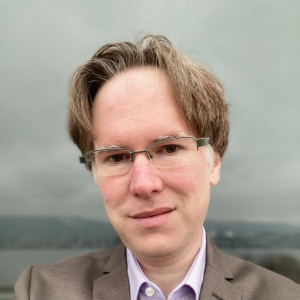
Dominik Steiger
Secretary
Chief Executive Officer at EvalueScience Ltd
Dominik Steiger is Chief Executive Officer at EvalueScience Ltd, an independent company specialized in expert-based consulting and research in the fields of biomedicine, health, and digital health. He is coauthor of the Microbiota Vault Feasibility Study and coordinates the launch of the initiative. Dr. Steiger has done research on the molecular genetics of growth control and of metal homeostasis. He holds a PHD in natural sciences from the University of Zurich.
Key activities: Vault Management & Initiative Development, Legal Framework

Thomas Bosch
Member of the Board
Professor at University of Kiel
Thomas C.G. Bosch is a professor of general zoology at Kiel University. Bosch is heading the interdisciplinary research center “Kiel Life Science” (KLS). He is also coordinator of the DFG funded Collaborative Research Center (CRC) “Origin and Function of Metaorganisms” which addresses the role of multi-organismic interactions between microbes and hosts for health and disease. The Bosch lab studies the intricate interactions between microbes and hosts in simple and evolutionary informative model systems.
Field: Impact of microbial interactions on host evolution, development and behaviour

Deborah Delgado-Pugley
Member of the Board
Professor at Pontificia Universidad Católica del Perú
With a Ph.D. in International Development and in Sociology, she has researched on environmental and climate policies at the international and territorial level, on climate change, indigenous movements, human rights, natural resource management, forestry development, and gender, in the Amazonas.
Field: Sociology, International Development, Indigenous Peoples wellbeing
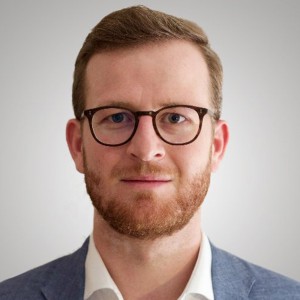
Manuel Fankhauser
Member of the Board
Chief Scientific Officer at Seerave Foundation
Manuel Fankhauser is Chief Scientific Officer at Seerave Foundation, an independent family foundation that aspires to broaden and enhance the Standard of Care for cancer patients, with the underlying conviction that more benign approaches can be developed to treat cancers and other illnesses by modulating the nutrition / microbiome / metabolite / immune system axis. Dr. Fankhauser holds a PhD in bioengineering from the Swiss Federal Institute of Technology in Lausanne (EPFL), where he worked on understanding the role of lymphatics in shaping anti-tumor immune responses.
Field: Global scientific collaboration in the tumor immunology and microbiome space
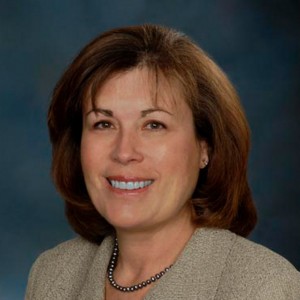
Claire Fraser
Member of the Board
Professor at University of Maryland
A pioneer and global leader in genomic medicine, Dr. Fraser is one of the most highly cited investigators in microbiology. In 1995, Dr. Fraser was the first to map the complete genetic code of a free-living organism—Haemophilus influenza—the bacterium that causes lower respiratory tract infections and meningitis in infants and young children. Her discovery forever changed microbiology and launched a new field of study—microbial genomics.
Field: Microbial genomics

Keiji Fukuda
Member of the Board
Honorary Professor at University of Hong Kong, School of Public Health
Professor Fukuda has extensive public health experience at global and national levels. During 2005 – 2016, he was a staff member of the World Health Organization (WHO) and held positions as Scientist, Coordinator and then Director of the Global Influenza Programme (2005-2008), Assistant Director-General for Health Security and Environment ad interim (2008-2009), Special Adviser on Pandemic Influenza to the Director-General (2009-2010), Assistant Director-General for Health Security (2010-2015) and Special Representative for Antimicrobial Resistance for the Director-General (2015-2016). Previous to WHO, he worked at the Centers for Disease Control and Prevention as Epidemiology Section Chief, Influenza Branch and Medical Epidemiologist, Viral Exanthems and Herpesvirus Branch.
Field: Public health

James J. Heckman
Member of the Board
Professor at University of Chicago
James J. Heckman is the Henry Schultz Distinguished Service Professor of Economics and Public Policy and Director of the Center for the Economics of Human Development at the University of Chicago. He has devoted his professional life to understanding the origins of major social and economic questions related to inequality, social mobility, discrimination, and the formation of skills and regulation in labor markets, as well as to devising and applying economically interpretable empirical strategies for understanding and addressing these questions. Heckman is the recipient of the Nobel Prize in Economics, the John Bates Clark Medal, the Jacob Mincer Award, the Dennis Aigner Award, the Ulysses Medal, the Theodore W. Schultz Award, the Gold Medal of the President of the Italian Republic, the Frisch Medal, the Dan David Prize, and is a Distinguished Fellow of the American Economic Association.
Field: Economics
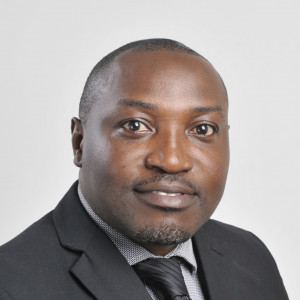
Alexander Kwarteng
Member of the Board
Senior Lecturer at Kwame Nkrumah University of Science and Technology
Alexander Kwarteng is a global scholar and an experienced immunologist and microbiologist at the Department of Biochemistry and Biotechnology Kwame Nkrumah University of Science and Technology, Ghana. Alex is also a Senior Research Fellow at the Kumasi Center for Collaborative Research in Tropical Medicine, Kumasi and the head of the Tropical Infections and Noncommunicable Disease Group. His main fields of research are microbiome and immunology of neglected tropical diseases.
Field: Microbiome and Immunology

Kwan Lui
Member of the Board
Founder of At-Sunrice GlobalChef Academy
Kwan Lui, founder of At-Sunrice GlobalChef Academy, is the recipient of an Honorary Doctorate in Educational Leadership from Johnson & Wales University and the Distinguished Alumna Award from Purdue University.
She is actively involved in various boards and her WellSpent Upcycling initiatives was given the DBS Foundation on Sustainability Award in 2022.
Lui’s expertise lies in education, culinary wellness, and upcycling food initiatives, where she passionately advocates for sustainability and health-promoting initiatives.
Field: Education, culinary wellness, upcycling food initatitatives
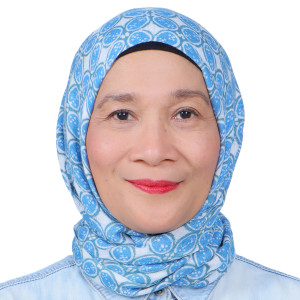
Safarina G. Malik
Member of the Board
Principal Investigator at the Genome Diversity and Disease Division of the Mochtar Riady Institute for Nanotechnology
Disease Division of the Mochtar Riady Institute for Nanotechnology. Her research interests include human genome diversity and disease, mitochondrial genetics and dysfunction, gut microbial diversity and lifestyle disease, and immune cell atlas. Her study explores the connections between genetics, microbial, nutritional, and environmental diversities, with health and lifestyle disease.
Field: Genome diversity, genetics, microbial diversity, lifestyle disease
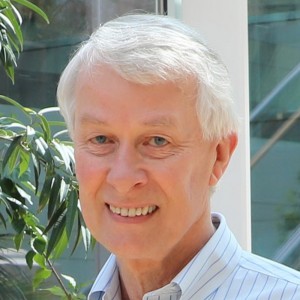
Richard J. Roberts
Member of the Board
Chief Scientific Officer at New England Biolabs
Sir Richard John Roberts is a biochemist and molecular biologist. He was awarded the 1993 Nobel Prize in Physiology or Medicine with Phillip Allen Sharp for the discovery of introns in eukaryotic DNA and the mechanism of gene-splicing. His current research interests focus on enzyme discovery using bioinformatics, combined with the experimental testing of function.
Field: Enzymology, bacterial genomics, DNA methylation

Pascale Vonmont
Member of the Board
CEO/Director Gebert Rüf Foundation
Pascale Vonmont manages the operational side of the private science and innovation-funding Gebert Rüf Foundation. Her portfolio as board is focused on the key areas of activity of the foundation. She leads “Venture Kick’s” Strategy Council and chairs “Startuptickers” Board of Trustees since 2015. She drove the formation of “digitalswitzerland” in 2015 and joined the “EY Entrepreneur of the Year Award” jury in 2021. As a SwissFoundations board member, she promotes Switzerland’s foundation sector and advises the Center for Philanthropy Studies. She served on the Swiss National Science Foundation’s Board of Trustees until 2023.
Field: Foundations, Science, Innovation, Entrepreneurship
Launch Team

Maria Gloria Dominguez-Bello
Professor at Rutgers University
Dr. Dominguez-Bello focuses on the microbiome development from birth, functions for the host, impact by practices that reduce microbial transmission or disrupt the microbiota, and strategies for restoration. She also studies how Westernization changes environmental microbes and human exposures, integrating the fields of anthropology and architecture/urban studies into microbial ecology.
Key activities: Local Working Collections, Sample Pathway, Validation

Nicholas Bokulich
Professor at ETH Zürich
Nicholas Bokulich is the Professor of Food Systems Biotechnology at the Institute of Food, Nutrition, and Health (ETH Zürich). The Bokulich laboratory develops computational methods and software for studying spatiotemporal dynamics of microbial ecosystems, and applies these tools to investigate the interface between microbiomes, food, and human health.
Key activities: Computational Framework, Metagenomics
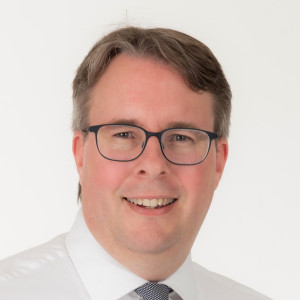
Adrian Egli
Professor, Director of the Institute of Medical Microbiology at University of Zurich
Prof. Egli’s main goals are: 1) to develop new diagnostic for rapid detection of multidrug resistant and virulent pathogen; 2) to explore novel typing technologies such as whole genome sequencing and MALDI-TOF mass spectrometry for clinical applications; 3) to finally understand pathogen evolution in the broad context of the host/pathogen/environment interaction. This could lead to the identification of the most critical factors important for pathogenicity, resistance development, and transmission. Such information will allow the generation of novel intervention strategies to impact disease outcomes for a single patient but also the population burden of infections.
Key activities: Storage, Metagenomics

Manuel Fankhauser
Chief Scientific Officer at Seerave Foundation
Manuel Fankhauser is Chief Scientific Officer at Seerave Foundation, an independent family foundation that aspires to broaden and enhance the Standard of Care for cancer patients, with the underlying conviction that more benign approaches can be developed to treat cancers and other illnesses by modulating the nutrition / microbiome / metabolite / immune system axis. Dr. Fankhauser holds a PhD in bioengineering from the Swiss Federal Institute of Technology in Lausanne (EPFL), where he worked on understanding the role of lymphatics in shaping anti-tumor immune responses.
Key activities: Vault Management & Initiative Development, Legal Framework

Dominik Steiger
Chief Executive Officer at EvalueScience Ltd
Dominik Steiger is Chief Executive Officer at EvalueScience Ltd, an independent company specialized in expert-based consulting and research in the fields of biomedicine, health, and digital health. He is coauthor of the Microbiota Vault Feasibility Study and coordinates the launch of the initiative. Dr. Steiger has done research on the molecular genetics of growth control and of metal homeostasis. He holds a PHD in natural sciences from the University of Zurich.
Key activities: Vault Management & Initiative Development, Legal Framework

Pascale Vonaesch
Professor at University of Lausanne
Pascale Vonaesch works on the role of the microbiota in nutrition-related diseases with a focus on child undernutrition as well as the triad linking nutrition, intestinal infection and the microbiota. Her current focus is on the development of microbiota-targeted interventions to ameliorate the current nutritional therapies, especially for under- and overnutrition and related health effects.
Key activities: Local Working Collections, Sample Pathway, Validation
Collaborators
We collaborate with scientists and supporters all over the world
(currently from 21 countries and 5 continents)
Dr. Barkay is a microbial ecologist who studies the interactions of microorganisms with their environment and the ways they affect, and are affected by, the changing conditions on our planet. She is investigating how the environmental microbiome is responding to the presence of toxic substances, modulating their impact on human and environmental health.
Field: Microbial ecology, environmental health
Dr. Bhattacharya is a genome biologist who studies the origin and evolution of biotic interactions and their response to environmental stress in systems such as coral reefs and seaweeds. He is a world-leading expert in the field of symbiosis and studies the origin of photosynthetic organelles and their metabolic integration in host cells. Current research uses multi-omics tools to determine how corals respond to climate change and his group is developing portable tools for monitoring coral health in the field.
Field: Symbiosis, environmental genomics, coral health monitoring
Nicholas Bokulich is the Professor of Food Systems Biotechnology at the Institute of Food, Nutrition, and Health (ETH Zürich). The Bokulich laboratory develops computational methods and software for studying spatiotemporal dynamics of microbial ecosystems, and applies these tools to investigate the interface between microbiomes, food, and human health.
Dr. Brodie is a microbiologist with expertise in soil and subsurface systems, in particular plant-microbial-mineral interactions and their role in soil carbon sequestration. His group explores and tests microbial trait theory, developing new approaches to derive traits from genomic information and to represent the interactions of microorganisms in complex systems through a range of modeling approaches. He is co-director of the Joint Berkeley Initiative for Microbiome Sciences.
Dr. Cano is specialized in Paleomicrobiology and is a recognized expert in environmental forensics and on the microbiome and resistome of European and Ancient American Cultures. He has taught microbiology and biotechnology at for 35 years, receiving more than a dozen rewards, including the prestigious Carski Award.
Field: Paleomicrobiology, human gut microbiota collection and population level studies.
Since its founding in 2015, The BioCollective has built a world-class kit for whole stool collection/population level studies. Their expertise on preparing samples, culture collections, storage methods and databases of metagenomic data will be important to the Vault repository and studies to understand microbial function.
Field: Systems analyses, human gut microbiota collection and population level studies.
Prof. Clavel has more than 15 years of experience in working on the mammalian gut microbiome using a combination of molecular and culture-based techniques. His team has been describing numerous novel bacterial taxa and assembling collections of bacterial strains from the intestine of various mammalian hosts, including mice (www.dsmz.de/miBC), pigs, and humans.
Field: Gut microbial ecology; anaerobic cultivation.
Dr. Clemente’s research is focused in understanding how microbiome
changes driven by Westernization are linked to immune conditions now
prevalent in industrialized societies. He is also interested in
approaches to restore microbial homeostasis to prevent and treat such
conditions, and in developing novel methods to characterize microbial
communities.
Field: microbiome, immune disorders, microbial therapeutics
Maria Carmen Collado is research scientist at Institute of Agrochesmisry and Foord Technology-Spanish National Researcg Councila (IATA-CSIC, Valencia, Spain). Her research work is multidisciplinary and includes microbiology, food science, nutrition and human health. Her interests are focused on microbiota and nutrition during pregnancy and early life period.
Field: microbiology, nutrition and lactation.
Gottfried Dasen is a Co-founder of the CCOS, a biological resource centre that maintains a public collection of bacteria and fungi and provides high quality biobanking services to its customers. He is responsible for the setup and maintenance of the cryostorage facilities of the CCOS.
Field: Microbiology, Cryopreservation, Biobanking.
Dr. Doré is Scientific director of MetaGenoPolis (mgps.eu), center of excellence in quantitative and functional metagenomics, and a world expert in gut microbiology, having contributed to the development of standards on microbiome research for translational applications.
Field: Human intestinal microbial ecology and metagenomics.
Dr. Dubilier’s research has fueled a major change in our understanding of the importance of symbioses in marine environments by showing that cooperation and mutualism play a critical, often overlooked, role in contributing to biodiversity in both the deep sea as well as shallow water environments like seagrass meadows and coral reefs.
Field: Host-microbe interactions, ecology and evolution, meta’omic’ and imaging analyses.
Dr. Eggesbø is an epidemiologist and the PI of the HUMIS-NoMIC study, in which the gut microbiome has been mapped from birth onwards to 12 years. Her research aims at exploring how early life factors, including exposure to toxicants, influences the infant gut microbiome, as well as understanding the long-term health impacts of a disrupted early microbiome.
Field: Gut microbiota in babies, SCFA, epidemiology, environmental toxicants.
Dr. Elinav is also the director of the cancer-microbiome division at the Deutsches Krebsforschungszentrum (DKFZ) in Heidelberg, Germany. His labs focus on deciphering the molecular basis of host-microbiome interactions and their effects on health and disease
Field: Nutrition, microbiology.
He is a Consultant Gastroenterologist and the Director of the UNSW Microbiome Research Centre, Australia’s first centre dedicated to all aspects of microbiome research with over 100 collaborative projects covering a wide spectrum of human health and disease. He is the Editor in Chief of the journal Gut.
Field: Microbiome, gastroenterology.
Dr. Eloe-Fadrosh is a microbial ecologist who focuses on developing new approaches and bioinformatic tools to identify and characterize uncultivated microbes from diverse environmental and host-associated samples. She heads JGI’s Metagenome Program to support a large portfolio of Department of Energy funded research projects in environmental genomics and leads the National Microbiome Data Collaborative.
Dr. Engstrand has more than 30 years experience, often combining population-based epidemiology with clinical and basic microbiological science, including molecular biology and genomics. He studies the human microbiome in health and disease, and his group introduced the use of next generation sequencing in studies of the human gastro-intestinal microbiome more than 10 years ago.
Field: Clinical and basic sciences, cancer, reproductive medicine and gut related disorders.
Dr. Figeys studies host-microbiome and drug-microbiome interactions in human microbiomes. His team is developing in vitro 96 well plate microbiome assays to study the effects of compounds on the human microbiome. As well, they develop bioinformatic software for metaproteomics.
Field: Host-microbiome interactions, drug-microbiome interactions, metaproteomics, bioinformatics.
Dr. Finlay is also co-director of the CIFAR Humans and Microbiome Program. His labs focus on host-microbe interactions, including both pathogenic microbes and the microbiome, and their effects on health and disease
Field: Microbiology, microbial pathogenesis.
Harry Flint is an Emeritus Professor at the University of Aberdeen (UK). He obtained his BSc and PhD in Genetics from the University of Edinburgh and subsequently held appointments at the Universities of Nottingham, the West Indies and Edinburgh before joining the Rowett Institute in Aberdeen in 1985. Harry’s research focuses on the contribution of commensal and symbiotic micro-organisms inhabiting the mammalian gut to nutrition and health. Harry has served on the UK ACNFP (Advisory Committee for Novel Foods and Processes) and as a Scientific Governor of the British Nutrition Foundation.
Field: Gut Microbiology.
Dr. Geva-Zatorsky studies the microbiota effects on host physiology and their therapeutic potential. She is interested in characterizing the microbial molecules involved and the mechanisms of their interactions with the mammalian host. In addition, she is studying the dynamics of microbial colonization, their spatial organization and the importance of bacteriophages in the gut ecosystem.
Field: Microbiology, immunology, systems biology.
Dr. Godoy-Vitorino is a Microbial Ecologist working on the role of microbes in human, animal and environmental health, and is working with liaisons to coordinate support for the Microbiota Vault, from global institutions. Filipa is the President of the American Association for the Advancement of Science (AAAS) Caribbean Division, 2020-2022
Field: Microbiomes, metagenomics.
Francisco Guarner, MD is a Consultant Physician specializing in Gastroenterology at University Hospital Vall d’Hebron (Barcelona, Spain). His areas of clinical practice and research are inflammatory bowel diseases, gut microbiota, and mucosal immunity.
Field: Gastroenterology, immunology, gut microbial ecosystem.
Dr. Hoffmann focuses his research on the interplay between the gut microbiome, diet, and immune modulation, how it changes as we shift our life-styles, and how to make use of this relationship to promote human health. His laboratory employs a multidisciplinary approach to address these questions, using both population surveys and human clinical studies. One of the ongoing study models uses unavailable carbohydrates to try to reveal how diet elements modulate the intestinal microbiome, directly as energy sources, and through their influence on the immune system.
Field: Microbial ecology, immune modulation, diet and nutrition.
Kenya Honda has been aiming to identify specific intestinal bacterial species that influence the host immune cells by inducing their functions and differentiation. By unraveling the mechanisms and key bacterial molecules, Honda team strives to develop therapeutic intervention for healing wide-array of intestinal dysbiosis, such as inflammatory bowel disease, auto-immune diseases and allergy.
Field: Microbiota therapeutics, microbiology, immunology.
Sue graduated from the University of California, Santa Barbara, and did graduate work at Art Center College and UCLA. She was staff at the National Geographic Society for 10 years, and as a Showrunner, mentored a unique team of filmmakers to create multiple blue-chip series and specials. Sue creates, develops, directs and writes original programming that is primarily focused on science, wildlife and conservation, and has delivered multiple series for PBS, National Geographic and the Discovery Channel.
Field: Everywhere except Antarctica, expertise in the High Arctic, India, Southeast Asia, Mexico and Mongolia. Topside and underwater.
Phil Hugenholtz has made significant contributions in the field of culture-independent analysis of microorganisms. He discovered and characterized numerous previously unrecognized major bacterial and archaea lineages and has developed a systematic genome-based classification for prokaryotes.
Field: Microbial diversity, taxonomy, ecology and evolution.
Dr. Gregorio Iraola is a computational microbiologist with experience in the study of bacterial and viral pathogens and the human and environmental microbiomes by integrating large-scale datasets generated by second and third-generation sequencing technologies with experimental and epidemiological data. Iraola lab contributes to understanding epidemiological patterns of bacterial and viral infections and to identify biomarkers and genetic signatures in microbial communities to detect or treat pathogenic conditions.
Field: Microbiology, microbiome, bioinformatics
Dr. Jansson is the lead for the Microbiomes in Transition (MinT) Initiative and studies phenotypic Response of the Soil Microbiome to Environmental Perturbations.
Field: Microbiomes, metagenomics.
Dr. Knights is a computational biologist who has developed some of the leading methods for analyzing microbiome data. He runs a research lab at the University of Minnesota where he brings together methods in machine learning, nutrition, and metagenomics to study how modern lifestyles and diets impact the gut microbiota in health and disease.
Field: Microbial ecology, machine learning.
Katri Korpela has focused on researching the gut microbiota of infants and young children, characterising the natural ecological succession of gut microbiota in early life, as well as identifying sources of disturbance and methods to restore the natural microbiota. Korpela’s current work aims to create a detailed understanding of the functioning of the gut ecosystem in infants in order to develop effective ways to modulate the microbiota for improved health.
Dr. Laxminarayan is broadly interested in issues of antimicrobial effectiveness as one of conserving a shared common resource. He is trained as an economist and an epidemiologist and his work addresses issues of economic and health consequences of resistance, antibiotic consumption in humans and animals, and incentives for appropriate use of existing antibiotics and development of new ones.
Field: Economics, epidemiology.
Simon Levin is an ecologist at Princeton, interested in the structure and dynamics of ecological communities in general and how theories of ecological organization can be applied to the microbiome.
Field: Ecology.
Dr. Malik’s research interest include mitochondrial genetics and dysfunction, genetic diversity , gut microbes and lifestyle diseases. She is one of the initiator of the IMELDA (Indonesian Model for Epidemic Lifestyle Disease Associations) study that link genetics, gut microbiota and nutrition/environment diversities with lifestyle disease.
Field: Genetics, lifestyle disease.
Mr. Manzella contributes to the global governance of innovation in agriculture by promoting mechanisms for an efficient science-policy interface. He has been advisor to the Global Crop Diversity Trust, and developing country governments on various themes related to biosecurity, trade and intellectual property.
Field: Law, intellectual property.
Dr. Marcone research focuses on literature, film, and arts with a significant potential for, or impact in facilitating, or blocking, adaptation to socio-ecological changes and uncertainty. He specializes on narratives of the Amazon, in diverse media and fields of study, that represent indigenous/aboriginal ontologies of the human and nonhuman, environmentalisms, and practices of socio-ecological resilience.
Field: Environmental humanities, amazonian studies, latin American cultural studies.
Dr. McCall uses a small molecule-centric metabolomics approach to understand microbiome function, with a focus on the connection between chemical signaling and microbial tropism and on the effects of eukaryotic colonizers on host and bacterial metabolism.
Field: Metabolomics, parasitology.
Dr. McDonald develops open access citizen science infrastructure to catalog host associated microbes. He is interested in facilitating data reuse for hypothesis generation and data exploration, and the development of software to enable large scale microbiome analysis.
Field: microbiome analysis, databases.
Dr. McFall-Ngai, in partnership with microbiologists, has developed the squid-vibrio model for the study of the chronic colonization of animal epithelia by Gram-negative bacteria. Using this model, she studies symbiont recruitment from the environment, specificity, development of the symbiotic system, and the mechanisms underlying persistence of the association.
Field: The development and use of model systems for the study of complex microbiota.
Tore Midtvedt has been a Lecturer in Medical Microbiology, Department of Bacteriology, Faculty of Medicine, University of Oslo, Norway since 1961-1963. He was a Visiting Scientist in the Department of Germfree Research, Karolinska Institute, Stockholm, Sweden from 1963-1966, Lecturer in Bacteriological Pharmacology, Faculty of Medicine, University of Oslo, Norway since 1966-1969. He was an Associated Professor in Medical Microbiology, University of Oslo since 1973-1982. He was Professor in Medical Microbiology, University of Oslo, Norway since 1982-1983. He was a Professor and Chairman in the Department of Medical Microbial Ecology, Cell and Molecular Biology in Karolinska Institute, Stockholm since 1983-1999 and has been a Professor Emeritus in Karolinska Institute since 1990.
Field: Medical microbiology
Dr. Beth Nash is a former Infectious diseases physician and researcher who has spent the past 25 years leading innovative value-based care initiatives in clinical settings and in the publishing, payer, and pharmaceutical industries. She has a longstanding interest in the relationship between the microbiome and chronic disease.
Field: Infectious diseases, medical writing, project management.
Dr. Noya Alarcon is an MD parasitologist working with remote Amerindian populations in the vast South American forests of the South of Venezuela. He studies the effect of modern lifestyles on human microbiota and health.
Field: Medicine, parasitology.
Dr. Olsvik is Professor in Medical Microbiology at Faculty of Health Sciences at the UiT-Norwegian Arctic University in Tromsø, Norway. He is also a former professor in veterinary microbiology at the Norwegian College of Veterinary Medicine Oslo, and spent several years at Centers for Diseases Control and Prevention in Atlanta, USA. He worked with diagnosis of diarrheal microbial diseases and intestinal bacterial flora. He has a special interest in antimicrobial resistance and outbreak investigations.
Field: Medical microbiology, antimicrobial resistance, outbreak investigations.
Raquel Peixoto is a microbial ecologist and Associate Professor of Marine Science at KAUST, King Abdullah University of Science and Technology, Saudi Arabia. Her pioneering research proved the concept that coral microbiome restoration and rehabilitation through the use of probiotics is possible, and, with that, her group created the only sustainable medicine currently being considered to protect and restore coral reefs.
Field: Microbial ecology, Marine microbiome restoration and rehabilitation
Prof. Loïc Pellissier investigates the global organization of biodiversity using molecular methods, remote sensing and machine learning. He develop techniques to capture and read organisms’ DNA from the environment to rapidly gather information about ecosystems. Combining data and models, he quantifies the legacy of past environmental changes on current biodiversity and model future trajectories under anthropogenic changes.
Field: Biodiversity, Environmental DNA, Machine Learning.
Dr. Penders is a microbial ecologist and epidemiologist and PI of various longitudinal observational and experimental studies, in which he integrates various ‘omics technologies to study the microbiome in health and disease. His group mainly focuses on understanding early-life microbiota establishment and maturation and how this relates to allergies and asthma as well as on the role of the microbiome as a reservoir of antimicrobial resistance.
Field: Microbial ecology in health and disease, antimicrobial resistance
Alexandre Soares Rosado is a microbiologist and Professor of Bioscience at KAUST, King Abdullah University of Science and Technology, Saudi Arabia. Former Full Professor at Federal University of Rio de Janeiro (UFRJ) and Visiting Professor at the Department of Land, Air and Water Resources, University of California – Davis, USA. His multidisciplinary research focuses on Microbial ecology, Microbiome science, biotechnology, and extreme environments.
Field: Physiology and ecology of microbes, metagenomics
Dr. Ruby has worked to understand the role of beneficial bacterial-host interactions for 40 years. Focusing on luminescent bacteria isolated from the light organs of marine animals, he helped discover the phenomenon of microbial quorum signaling and, with Margaret McFall-Ngai, has developed the Vibrio fischeri-sepiolid squid light-organ association as a natural experimental model for microbial symbioses.
Field: Host-microbe signaling pathways, bacterial physiology and genomics.
Matthew Ryan has curated the CABI microbial culture collection since 2006 and has led research into ensuring the genomic stability of fungi through the development of novel cryopreservation protocols. More recently, he has played an active role in various international activities to ensure that collection and biobanking infrastructure are developing to meet the needs of the microbiome research community, especially in the areas of Agri-food. He currently leads a UK BBSRC project to establish a crop microbiome cryobank, is a collaborator on the EU Microbiome Support project and a board member of the International Alliance for Phytobiomes Research.
Field: Collections, Cryopreservation, microbiology, mycology.
Dr. Scharl is specialized in Gastroenterology and Head of the Translational Microbiome Research Center at USZ. He studies the interaction between the intestinal microbiota and the immune system. He is investigating the potential of the intestinal microbiome and particularly, specific bacterial strains, as therapeutic agents or biomarkers in inflammatory and malignant diseases.
Field: Gastroenterology, immunology, gut microbiota.
Dr. Schmidt is director of the Michigan Microbiome Project and a microbiologist who has studies microbes from diverse environments. Most recently he has focused on understanding how environmental characteristics in the GI tract influence the functioning of the gut microbiota and how to engineer that system for desired outcomes.
Field: Physiology and ecology of microbes in complex microbial communities.
Dr. Sonnenburg studies the mechanisms that underlie gut microbiota dynamics. Her group focuses on understanding the impact of diet on gut microbiota composition and function. Current efforts are focused on defining and understanding the biology of gut microbes that have been depleted over the course of industrialization.
Field: Diet-microbiota dynamics, microbes lost during industrialization.
Dr. Sonnenburg studies the gut microbiota in health and disease and co-directs the Center for Human Microbiome Studies. His laboratory at Stanford develops and employs diverse technologies to understand basic principles that govern interactions within the intestinal microbiota and between the microbiota and the host. An ongoing objective of the research program is to devise and implement innovative strategies to prevent and treat disease in humans via the gut microbiota.
Field: Gut microbiota mechanisms and function.
Dr. Stokholm research area can be described as clinical translational research combining basic research methodologies and bioinformatics approaches mainly from the microbiology field with clinical data from birth cohort studies. The research has especially contributed to the understanding of how the microbiome in pregnancy and early life is shaped, and affected by factors such as antibiotics and delivery mode, and whether these factors as well as the microbiome can change risk of asthma and allergy. He is leading the microbiome group at COPSAC.
Field: Microbiota development and clinical implications.
Luis Teixeira is interested in how hosts interact with symbiotic microorganisms at the functional and evolutionary levels. He studies interactions with microbial pathogens and mutualists, as well as, how microbes influence each other. In this context his group has been collecting and characterizing isolates of the microbiota of wild Drosophila populations.
Field: Host-microbe interactions.
Dr. Vargas-Robles is a researcher microbial ecology focusing in the effect of modern lifestyles in human microbiota, HPV and health. She is also studying indoors microbiomes of highly transit urban systems such as city subways.
Field: Microbial Ecology, metagenomics.
Dr. Vereecke studies mechanisms underlying inflammatory and the contribution of the microbiota in multiple pathologies, in particular, the mechanistic link between gut & joint pathologies.
Field: Microbiomes, immunology.
Pascale Vonaesch works on the role of the microbiota in nutrition-related diseases with a focus on child undernutrition as well as the triad linking nutrition, intestinal infection and the microbiota. Her current focus is on the development of microbiota-targeted interventions to ameliorate the current nutritional therapies, especially for under- and overnutrition and related health effects.
Dr. Wang is a systems and synthetic biologist who studies the composition, dynamics, spatial organization, and function of the microbiome using genomics and metagenomics approaches. He is interested in generating high-throughput strategies to culture and analyze gut microbiomes and engineering them for diagnostic and therapeutic applications.
Field: Microbiome, culturomics, systems biology.
Dr. Xavier’s main research interest is inter-species cell-cell communication in bacteria and its role in beneficial and hostile interactions with the host. She started working on bacterial quorum sensing in her postdoc at Princeton University where she showed that the quorum sensing signal autoinducer-2 can foster interspecies communication in bacteria. Recently, her group showed that manipulation of interspecies quorum sensing in the mammalian gut can influence species composition of the microbiota. In 2012 she received the Howard Hughes Medical Institute International Early Career Award.
Field: Microbial molecular biology, biochemistry and quorum sensing.
Dr. Zhao studies how nutrition impact human health by way of modulation of the gut microbiota.
Field: Nutrition, microbiology.
A/Prof Zimmermann is a clinical scientist in Paediatric Infectious Diseases who studies the transfer of microbes from mothers to infants, the effect of intrinsic and extrinsic factors on the composition of the breast milk, the infant intestinal, nasal and oral microbiome and their association with immune and non-immune mediated diseases in childhood.A/prof Zimmermann leads the Microbiota and Children Laboratory (Miracle) in Fribourg, Switzerland.
Field: microbiome in children, nutrition